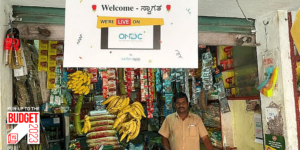
Signal, the non-profit private messaging service, estimated that it will incur an annual operating cost of approximately $50 million by 2025.
In a recent blog post, Meredith Whittaker, President of Signal Foundation, and developer Joshua Lund emphasised the messaging service’s reliance on donations to fund operations instead of “monetising surveillance” while also noting that the $50 million capital would be a lean budget compared to other messaging apps.
“Compared to most tech companies, Signal’s numbers are a drop in the bucket,” they noted.
The non-profit said it needs about $14 million annually to cover various infrastructure expenses, as of November 2023. Almost half of the capital would go into covering the delivery of verification codes during sign-up. The temporary storage of end-to-end encrypted files incurs a cost of approximately $1.3 million per year for Signal.
.thumbnailWrapper
width:6.62rem !important;
.alsoReadTitleImage
min-width: 81px !important;
min-height: 81px !important;
.alsoReadMainTitleText
font-size: 14px !important;
line-height: 20px !important;
.alsoReadHeadText
font-size: 24px !important;
line-height: 20px !important;

Signal’s voice and video calls need approximately 20 petabytes of outbound bandwidth annually, equivalent to 20 million gigabytes. The bandwidth fees for these calls alone amount to about $1.7 million per year at current traffic levels, as per the blog post.
Signal is a free and open-source privacy-focused messaging app that allows users to send and receive encrypted text messages, voice and video calls, and files. In 2018, Brian Acton, Co-founder of WhatsApp, donated $50 million to establish the Signal Foundation, a non-profit organisation dedicated to supporting the development of Signal.
Signal allocates about half of its $19 million annual budget to recruit and retain professionals, including dedicated teams for Android, Desktop, and iOS. Its team of 50 employees handles development, maintenance, product design, and support.
“Instead of monetising surveillance, we’re supported by donations, including a generous initial loan from Brian Acton. Our goal is to move as close as possible to becoming fully supported by small donors, relying on a large number of modest contributions from people who care about Signal,” Whittaker and Lund wrote in the blog post.
“We believe this is the safest form of funding in terms of sustainability: ensuring that we remain accountable to the people who use Signal, avoiding any single point of funding failure, and rejecting the widespread practice of monetising surveillance,” they added.
Edited by Kanishk Singh








![Read more about the article [Funding roundup] Butterfly, Nirmalaya, Urban Sphere raise early-stage deals](https://blog.digitalsevaa.com/wp-content/uploads/2022/05/Funding-1587044486257-300x150.png)
![Read more about the article [Funding roundup] Pescafresh invests in Hackle; Univest, Savart raise early-stage deals](https://blog.digitalsevaa.com/wp-content/uploads/2022/08/IMG-4730-1661409550298-300x143.jpg)
